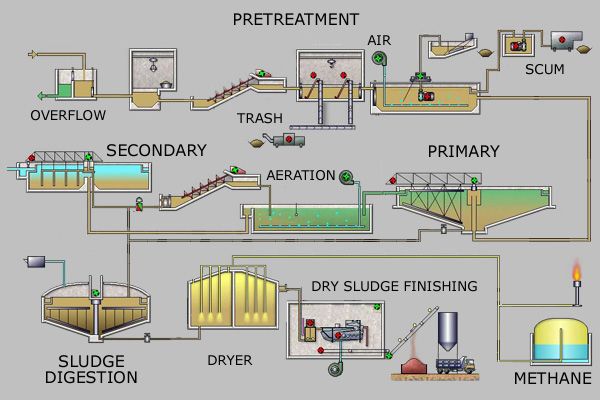Organic solids are the main pollutants in wastewater. Removing these solids from wastewater is an energy intensive process. ISTC researcher Lance Schideman has received a $1.98 M grant from the U.S. Department of Energy to help solve this problem.
In this project, “Maximizing Bio-Renewable Energy from Wet Wastes (M-BREWW),” Schideman’s team will investigate the use of a new type of anaerobic membrane bioreactor at wastewater treatment plants.
The project team includes collaborators at Ohio University, Colorado State University, the US Army Corp of Engineers’ Construction Engineering Research Laboratory (CERL), Mainstream Engineering, and Aqua-Aerobic Systems.
They will build on previous work by combining the components of their distributed low-energy wastewater treatment (D-LEWT) system into a fully functioning pilot-scale unit. The D-LEWT system converts wastewater organic solids and ammonia into two harvestable fuels for biopower production (specifically methane and hydrogen gases).
The integrated D-LEWT system and the improvements made to the system components in this project could increase the net energy production at wastewater treatment plants by up to ten times that of current systems.


